- Home
- Robert B. Parker
Rough Weather Page 4
Rough Weather Read online
Page 4
“Short buildings?” Susan said.
“Short buildings, sure,” I said.
“No regrets?”
“None about the buildings,” I said.
“But otherwise?”
“Sorrow sometimes. Like when I lost Candy Sloan. But . . .”
“But?” Susan said.
I shrugged, and realized she couldn’t see me. It was odd talking like this, two disembodied voices in the oppressive darkness. The lightning flashes seemed to be gone.
“But I did what I could,” I said.
“It helps to know that,” Susan said, “when you lose.”
We were quiet for a time, listening to the horses move pleasantly in their stalls.
“What do you think happened to those security guards?” Susan said.
“Nothing good,” I said.
“You think Rugar killed them?”
“Yep.”
“Because that’s what you would have done.”
“If I were Rugar,” I said.
“What’s interesting is, why you’re not.”
“Not Rugar?” I said.
“In many ways you’re like him,” Susan said. “But in crucial ways you’re not. It’s like Hawk. I’ve never quite figured it out.”
“Hawk’s different than Rugar,” I said.
“I know,” Susan said. “All three of you have rules.”
“We do.”
“But?” Susan said.
“That’s all Rugar’s got,” I said.
“Hawk has more?”
“Yes,” I said.
“And you?”
“I have you,” I said.
“I like to think that,” Susan said. “But I’m pretty sure you were different than they are before you met me.”
“Maybe I was,” I said. “But far less happy.”
We were quiet again. The horses were quiet. It was hard to be sure, but I thought it possible that the storm was quieting.
“My hair is plastered to my skull,” Susan said. “And I’m sure that all my face has washed away.”
“Lucky it’s dark,” I said.
12
At the opposite end of the barn was a window high up near the peak of the roof. I knew that because it had a little gray light showing though it. Susan was soddenly asleep on the floor beside me. I got up stiffly and walked to the barn door. The horses stirred and muttered. It might have been me walking around, or maybe horses just get hungry early. Outside, except for the uprooted trees and the scattered limbs and the saturated earth, it was as if the world had begun again. The air was clean and still, pungent with the salt smell of the ocean. Nothing moved. To the east the sky was bright with the impending sun. I moved along the edge of the barn with my gun in my hand. The cliff edge was ahead of me. To my left I could see the MP9 that had disappeared in the fight last night. Most of it was washed over with mud, and only the barrel showed. I left it. It would need to be cleaned to be dependable. On the other side of the barn, and at a little distance, I heard the sound of the helicopter starting up. I edged around the corner of the barn and looked toward where I thought it was. It was a lot closer than it had seemed in last night’s pitch-black chaos. The blades were turning. And as I watched, the chopper lifted off the ground, hovered for a moment, and then banked away north toward the mainland.
I watched it fly out of sight and then went back inside the barn. The horses were all looking at me.
“I’ll make sure somebody feeds you,” I said.
Susan had sat up, leaning her back against the wall.
“Who are you talking to?” she said.
“The horses,” I said. “They’re looking for breakfast.”
“And what did you tell them?”
“I said I’d get them fed.”
Susan looked at me for a moment, fully awake now.
“My God,” she said. “I hope you look worse than I do.”
“I always look worse than you do,” I said.
“You’re a mud ball,” she said.
I looked down at myself. All of myself that I could see was caked with mud and grass. I looked at her. Her hair had dried plastered to her skull. The only makeup she had left was her eye makeup, which made dark streaks and splotches on her face. I grinned at her.
“Don’t you ever change,” I said.
“What were you doing outside?”
“Watching the helicopter take off,” I said.
“They’re gone?”
“I would say so.”
“All of them?”
“I can’t imagine a reason to leave anyone here,” I said.
Except the guy at the bottom of the cliff.
I wondered if he was still there or, more likely, had washed out to sea.
“So presumably, they’ve got the girl,” Susan said.
“Presumably,” I said.
“What are we going to do?”
“Reconnoiter,” I said.
“I need coffee,” Susan said, “and a bath, and a bright mirror, and food.”
“That will depend on when the power comes back on,” I said.
“Omigod,” Susan said. “No coffee? A cold bath?”
“Maybe there’s a generator,” I said.
We went out of the barn.
“Want to walk with me while I scope out the island,” I said. “Make sure.”
“Yes,” she said. “I don’t want to be someplace without you.”
“Here we go,” I said.
We circled the island. It was a small island. It didn’t take long. I carried my gun in my right hand at my side. I was pretty sure all the evildoers had gone. But there was no reason not to be careful. Halfway around the island there was a body. It was one of the Tashtego patrol guys. Susan stopped. I went ahead and knelt down and looked at his storm-soaked body. He’d been shot once, as far as I could see, in the forehead. I nodded to myself and got up and went back to Susan.
“Dead,” I said. “I suspect we’ll find the others the same way.”
“Rugar?” Susan said.
“Sure,” I said. “Keeping busy. While everybody’s getting ready for the wedding, he walked around and popped these guys, one at a time.”
“They’d have had no reason to be suspicious,” Susan said. “So well dressed, so distinguished, just another wedding guest, taking a stroll.”
“Yep.”
“One at a time,” Susan said. “What kind of a man does that?”
“Probably not a people person,” I said.
There was another security guy dead behind the chapel. Same bullet hole in his forehead. The chapel itself was empty except for the two bodies near the altar rail. The doors were standing open, the candlesticks tipped over, the flowers scattered, the gauze draping tangled and wet.
We moved on into the main house. The sun was up by now, but even so I could see that lights were on in the house. And I could hear the sound of the generator. Probably one of those that kicked in automatically when the power went out. The front door was locked, like that would have slowed Rugar down had he wanted to come in. I walked along the front of the house and looked in the floor-to-ceiling windows at the living room. The wedding guests were there, some asleep on the furniture, some asleep on the floor, some staring apprehensively out the window at me. Most of them looked as if they’d spent a lot of time outside in the weather. Sitting quietly in a big wing chair by the fireplace, Heidi saw me and stood. I pointed to the front door, and she nodded and walked toward it and let me in.
“Oh my God,” she said. “I thought you were dead. Do you know where Adelaide is?”
“Helicopter took off,” I said. “I assume she was aboard.”
“Oh, Jesus,” Heidi said.
“They took her for a reason,” I said. “If they wanted to kill her, they could have done it here.”
She nodded.
“Did you have any chance to save her?” she said.
“No,” I said.
“I’m sure you did your best,”
she said.
I nodded.
“Anyone call the cops?” I said.
“Yes. Several people had cell phones. As soon as the candles blew out in the chapel, we all ran out and hid everyplace. The people with cell phones called nine-one-one. But of course the police had no way to get here.”
“They’ll be along,” I said.
“Have the criminals all gone?” Heidi said.
“I just scoped the island,” I said, “and found nobody.”
“Thank God for small favors,” she said.
“Or big ones,” I said.
“Are you all right, Dr. Silverman,” Heidi said.
“Yes,” Susan said.
Heidi studied us for a moment. Her face was pinched, and she looked pallid. But she was not giving in to whatever she felt.
“There’s hot water,” Heidi said. “I’m going to the kitchen now to see if we can get some sort of breakfast together. See if I can find any of the staff.”
Susan and I went to our room, and I got the first sight of myself in the mirror. I looked like I was in blackface . . . full body.
Susan and I went to the kitchenette, where the floor was made of stone, and took off all our clothes.
“We going to salvage any of your stuff?” I said.
“No,” Susan said.
She found a big green plastic bag in the broom closet, and we bundled the clothes up and put them in the bag. I saved my gun and a jackknife that I took from my pants pocket. Susan saved nothing.
There were two bathrooms, at least, in our suite. We each went to one of them and undertook a cleanup. It took me about half an hour. It took Susan much longer.
13
We were clean and sprightly. We had drunk coffee and eaten sandwiches in the living room, and now we were talking to the cops. The state guys had the duty on the south-coast islands, and there were a lot of them. The first arrivals were a SWAT team in full battle dress who came in by helicopter, much as their opposites had. They went about securing the island. A second chopper brought some EMTs, who tended to people who thought they needed tending to. Later, by boat, almost sedately, came the detectives, led by the state homicide commander, Captain Healy.
When Healy came into the living room and spotted Susan and me, he gestured for us to follow him and we went down the hall to another room, which somebody called the parlor. In my youth the parlor and the living room were one and the same, but my youth was not spent on Tashtego Island.
“Susan,” Healy said when we were alone. “If I looked like you, I wouldn’t waste my time on the likes of him.”
“There are things you don’t know,” Susan said.
“Or want to,” Healy said. Then he turned to me and said, “Okay, tell me what you know.”
I told him. He looked at Susan.
“Anything to add?” he said.
She shook her head. He looked back at me.
“Just to be sure I understand,” Healy said, “Heidi Bradshaw hired you to be some sort of substitute husband for the wedding.”
“What she told me,” I said.
“You believe her?”
“No.”
Healy looked at Susan.
“You believe her,” he said.
“No.”
“Either of you have an idea of what she might really have wanted?”
Susan said, “No.”
I said, “No idea.”
Healy nodded.
“You have had some dealings with the Gray Man before,” he said to me.
“Yes.”
“Do you think it’s a big coincidence that you and he show up on an island off the south coast of Massachusetts?”
“No,” I said.
“What do you think it is?” Healy said.
“No idea.”
Healy nodded again. He looked at Susan and smiled.
“There you have the essence of my professional life,” he said.
“Oddly enough,” Susan said, “mine, too.”
“You know if Rugar was invited?” Healy said to me.
“I don’t know,” I said.
“Anything else either of you want to tell me?” Healy said. “Observation? Theory? Anything?”
I shook my head. I could see Susan thinking about it. So could Healy.
“What?” he said to her.
“Just . . . not even an observation . . . an impression, maybe,” Susan said.
“Yeah?” Healy said.
“I’ve seen a lot of traumatized people in my practice,” Susan said. “Heidi Bradshaw seems to be holding up awfully well in the face of a horrendous experience culminating in the murder of her son-in-law and the kidnapping of her daughter.”
“You think she’s somehow involved?” Healy said.
“Perhaps she’s simply numb with shock,” Susan said. “Perhaps she’s Mother Courage. I only can say that her behavior is not consistent with other behavior I’ve seen in other traumatic circumstances. And I’ve never seen circumstances as flamboyantly traumatic as these.”
Healy looked at me. I shrugged.
“We all know it’s hard to assess the performance of people under stress,” I said.
Healy was silent. He walked to one of the tall windows and looked out at the storm-littered lawn.
“Well,” he said, “we’ll see.”
He turned back to us from the window.
“You want to go home?” he said.
“Yes,” Susan said.
“I’ll tell my people at the dock to let you go,” Healy said.
Susan said, “Thank you.”
Healy looked at me and said, “You going to stay in this?”
“I think I will,” I said.
“Thought you might,” Healy said. “Just don’t muddy the waters.”
I grinned at him.
“Can’t promise,” I said.
“Didn’t think you could,” Healy said.
14
What with packing and waiting for a boat and such, we got to Susan’s house in the late afternoon. Hawk was there with Pearl. We went in, kissed Pearl, thanked Hawk, fed Pearl, went to bed, and slept for fourteen hours.
In the morning I fed Pearl again and made coffee while Susan prepared a face to meet the patients she would see today. Susan pulled together for work was rather different from the Susan whom I often took to dinner. Work was dark tailored suits, quiet makeup, little jewelry. Dinner was much more glamorous.
And after dinner was sometimes exotic.
At eight-thirty Susan went downstairs for her first patient. Pearl and I went out and ran along the river. We were back to Susan’s by nine-thirty. We were in my office checking the mail by ten. Actually, I was checking the mail. Pearl was on her couch against the far wall, resting her eyes.
The mail was unenlightening, though a couple of clients paid their bills, which was pleasing. There were no phone messages, no e-mail except spam. I wondered if anyone ever bought anything as a result of being spammed. I hoped not.
I got out a lined yellow pad and a Bic pen and sat, and looked out the window at the place where Berkeley Street crosses Boylston. Or does Boylston cross Berkeley? Either way, the storm that had hit Tashtego full-on had then followed the coast-line out along the cape and on out to sea. Boston had gotten only rain. The rain had been heavy and had washed everything so that the old redbrick city seemed to glow in the Indian-summer sunshine.
I wrote Heidi Bradshaw on my pad.
Then I sat some more and looked out the window.
Then I wrote Peter Van Meer on my pad. And in a creative frenzy wrote down Maurice Lessard and Adelaide Van Meer Lessard . Then I looked out the window some more.
It was odd for the Gray Man to be involved in a simple kidnapping for ransom, even one as ornate as this one. And if he was going to kidnap her, why would he not wait until she was on her way home from Wal-Mart, or Tiffany, or wherever Adelaide shopped, and grab her. Why a kidnapping that required a squad of submachine gunners and a helicopter, in front of a
host of celebrated people, on an island that had limited exit choices?
“Why is that?” I said to Pearl.
Pearl, who was lying on her back with her feet in the air and her head lolling off the couch, opened her eyes for a moment and looked at me upside down, and closed her eyes again.
“Lassie woulda known,” I said.
I got up and made some coffee and stood in my bay window and looked down while it brewed. Then I poured myself a cup with cream and sugar and sat back down and put my feet up.
I drank some coffee.
Did Rugar want it to be noticeable? Or did someone who hired Rugar want that? Did they want to sell the kidnapping? Why would they want to? Why would they think they needed to? And why Rugar? Rugar was the big leagues. Whoever wanted her kidnapped could have hired any third-rate fringe guy to grab her. How did they even know about Rugar? You didn’t find him hanging on a corner in South Philly.
I drank some more coffee.
Maybe I was looking the wrong way. Maybe the kidnapping was a decoy. On my yellow pad I wrote DEATHS: Minister, Maurice Lessard, four Tashtego patrol guys, the shooter I threw off the cliff. Others? The guy off the cliff could not be planned for. I crossed him out. The security guys almost certainly just drew the wrong duty at the wrong time. Hard to imagine that this whole elaborate charade was a cover to kill one or more of them. I knew nothing about the minister. If there were others, Healy would let me know. Healy was meticulous. He would run down everybody. And he would share it with me. We went back a long way, and while we weren’t exactly friends, we weren’t exactly not friends. More than that, Healy was not a protocol guy. If anyone could help him, he’d take the help.
I stood again and looked down at Berkeley Street. It was lunchtime, and lots of people, many of them well-dressed young women, were on the street, going to lunch. I examined them closely, but none looked suspicious.
I sat down again. I poured some more coffee. I drank some and stared out the window some more. Then I picked up my pen and crossed out everybody on my yellow pad but Heidi and Adelaide, Peter Van Meer, and Maurice Lessard.
“Solid gumshoe technique,” I said to Pearl. “Narrow the investigation.”
Pearl didn’t even open an eye. She usually paid very little attention to discussions that did not involve food or a walk. She paid very little attention to this one.

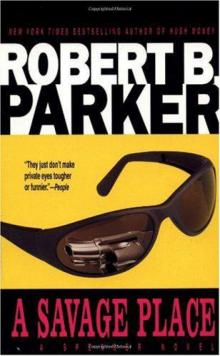 A Savage Place s-8
A Savage Place s-8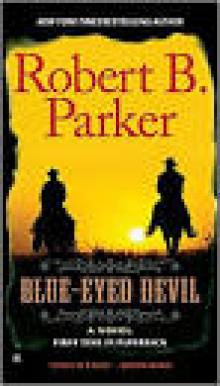 Appaloosa / Resolution / Brimstone / Blue-Eyed Devil
Appaloosa / Resolution / Brimstone / Blue-Eyed Devil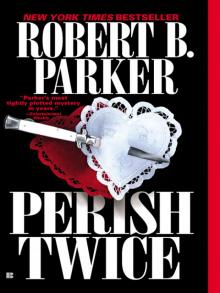 Perish Twice
Perish Twice Spare Change
Spare Change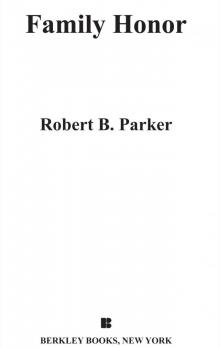 Family Honor
Family Honor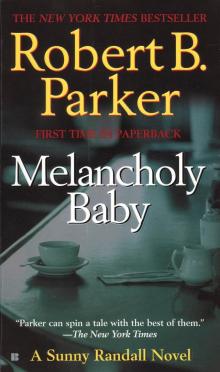 Melancholy Baby
Melancholy Baby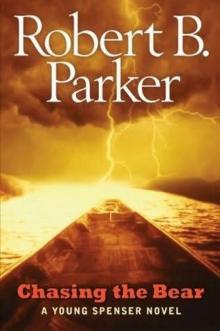 Chasing the Bear
Chasing the Bear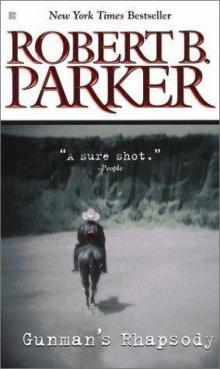 Gunman's Rhapsody
Gunman's Rhapsody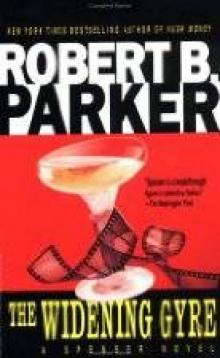 The Widening Gyre
The Widening Gyre Thin Air
Thin Air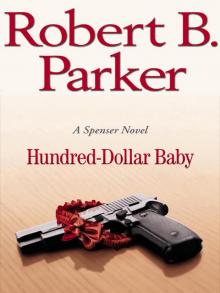 Hundred-Dollar Baby
Hundred-Dollar Baby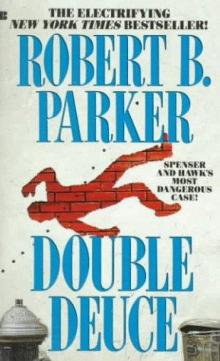 Double Deuce s-19
Double Deuce s-19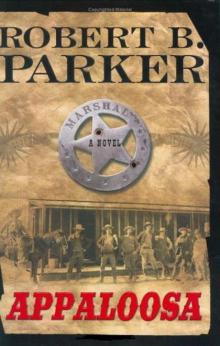 Appaloosa vcaeh-1
Appaloosa vcaeh-1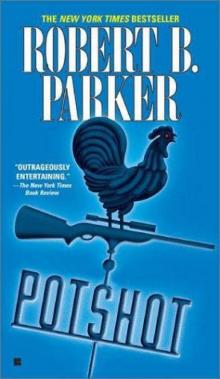 Potshot
Potshot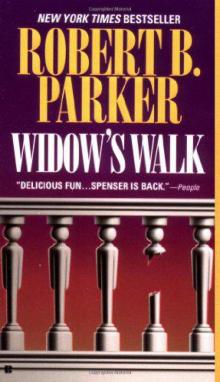 Widow’s Walk s-29
Widow’s Walk s-29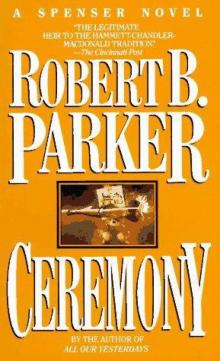 Ceremony s-9
Ceremony s-9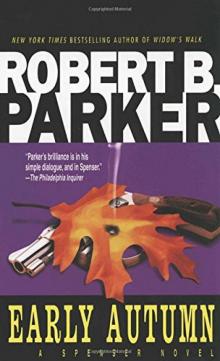 Early Autumn
Early Autumn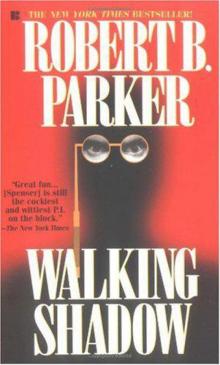 Walking Shadow s-21
Walking Shadow s-21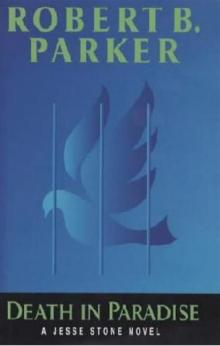 Death In Paradise js-3
Death In Paradise js-3 Shrink Rap
Shrink Rap Blue-Eyed Devil
Blue-Eyed Devil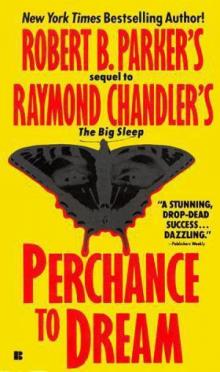 Perchance to Dream
Perchance to Dream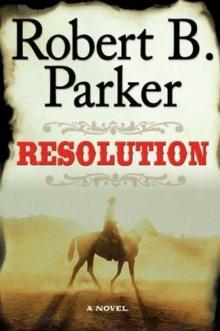 Resolution vcaeh-2
Resolution vcaeh-2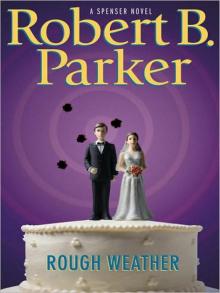 Rough Weather
Rough Weather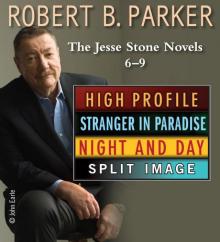 The Jesse Stone Novels 6-9
The Jesse Stone Novels 6-9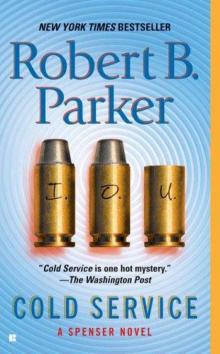 Cold Service s-32
Cold Service s-32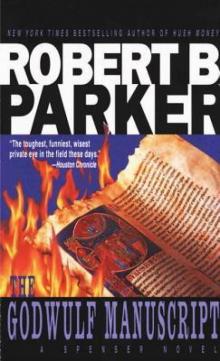 The Godwulf Manuscript
The Godwulf Manuscript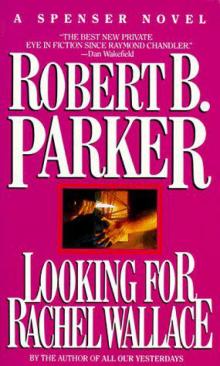 Looking for Rachel Wallace s-6
Looking for Rachel Wallace s-6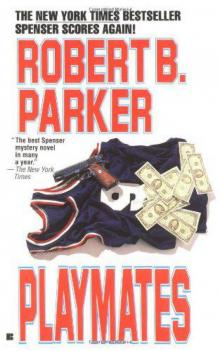 Playmates s-16
Playmates s-16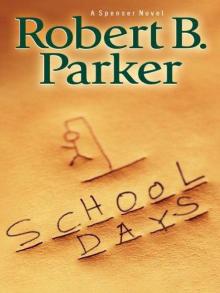 School Days s-33
School Days s-33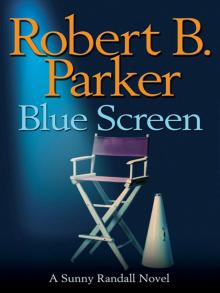 Blue Screen
Blue Screen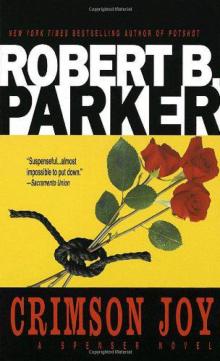 Crimson Joy
Crimson Joy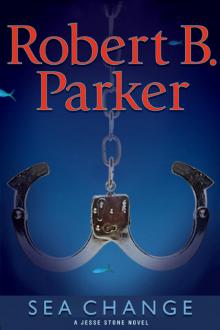 Sea Change js-5
Sea Change js-5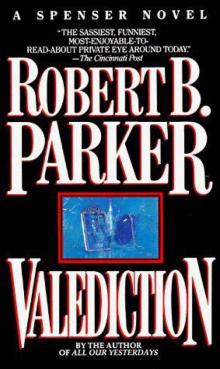 Valediction s-11
Valediction s-11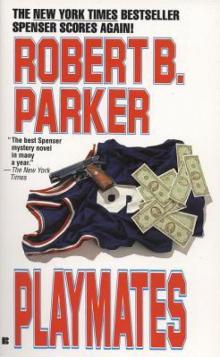 Playmates
Playmates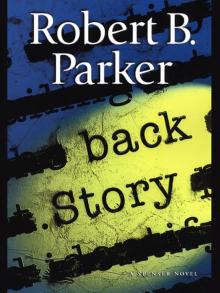 Back Story
Back Story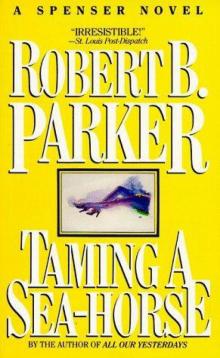 Taming a Sea Horse
Taming a Sea Horse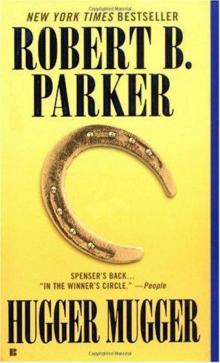 Hugger Mugger
Hugger Mugger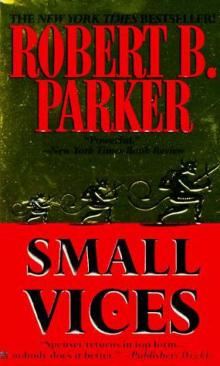 Small Vices s-24
Small Vices s-24 Silent Night: A Spenser Holiday Novel
Silent Night: A Spenser Holiday Novel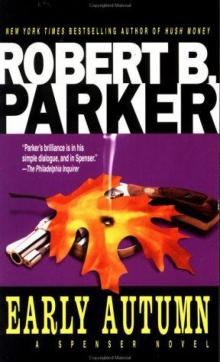 Early Autumn s-7
Early Autumn s-7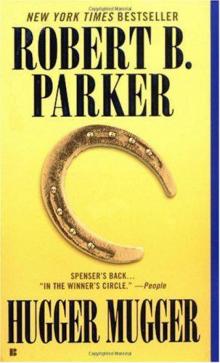 Hugger Mugger s-27
Hugger Mugger s-27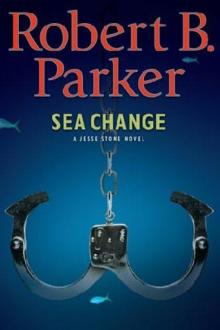 (5/10) Sea Change
(5/10) Sea Change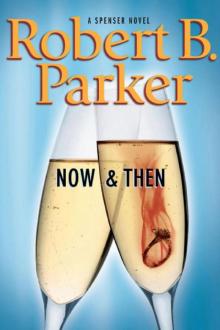 Now and Then
Now and Then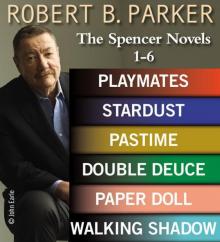 Robert B. Parker: The Spencer Novels 1?6
Robert B. Parker: The Spencer Novels 1?6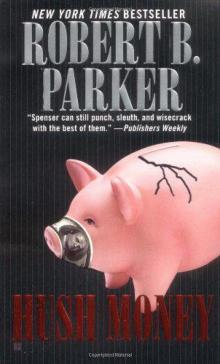 Hush Money s-26
Hush Money s-26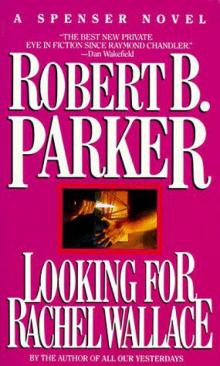 Looking for Rachel Wallace
Looking for Rachel Wallace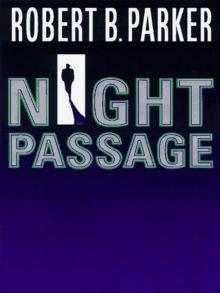 Night Passage
Night Passage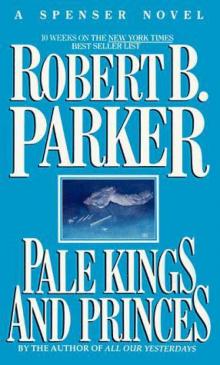 Pale Kings and Princes
Pale Kings and Princes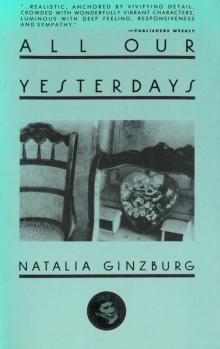 All Our Yesterdays
All Our Yesterdays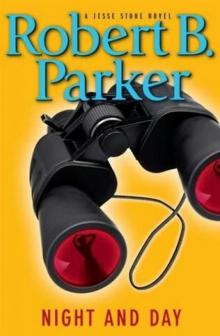 Night and Day js-8
Night and Day js-8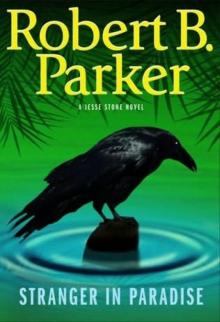 Stranger in Paradise js-7
Stranger in Paradise js-7 Double Play
Double Play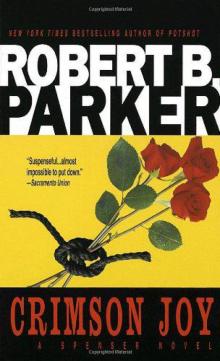 Crimson Joy s-15
Crimson Joy s-15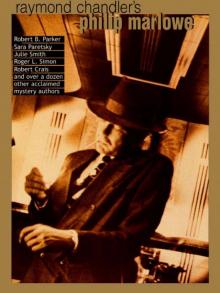 Raymond Chandler's Philip Marlowe
Raymond Chandler's Philip Marlowe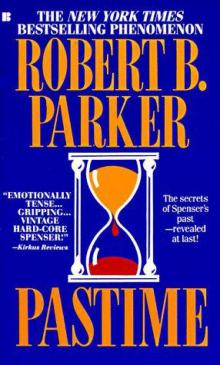 Pastime
Pastime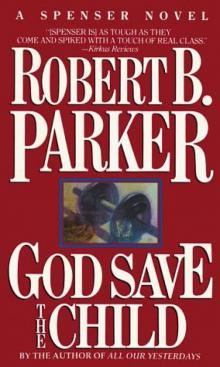 God Save the Child s-2
God Save the Child s-2 Bad Business
Bad Business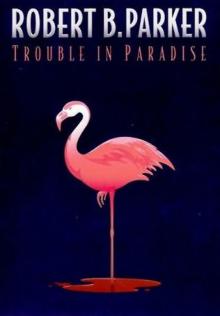 Trouble in Paradise js-2
Trouble in Paradise js-2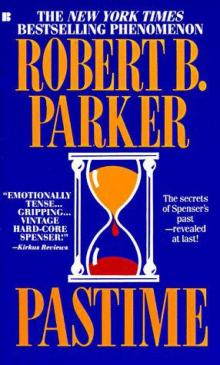 Pastime s-18
Pastime s-18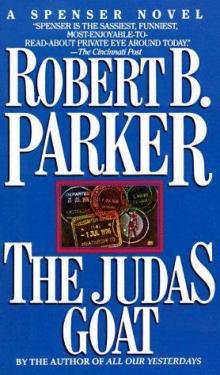 The Judas Goat s-5
The Judas Goat s-5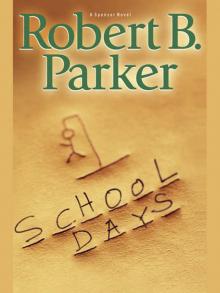 School Days
School Days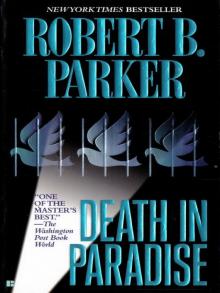 Death In Paradise
Death In Paradise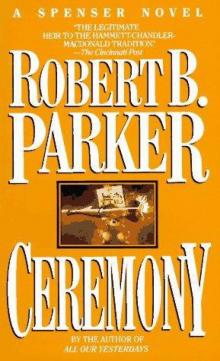 Ceremony
Ceremony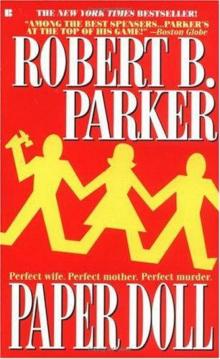 Paper Doll s-20
Paper Doll s-20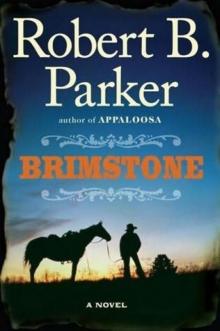 Brimstone vcaeh-3
Brimstone vcaeh-3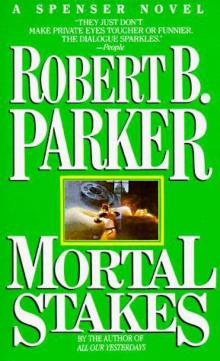 Mortal Stakes s-3
Mortal Stakes s-3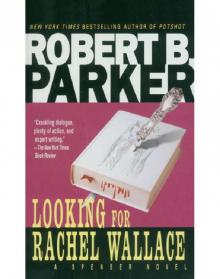 Spencer 06 - Looking for Rachel Wallace
Spencer 06 - Looking for Rachel Wallace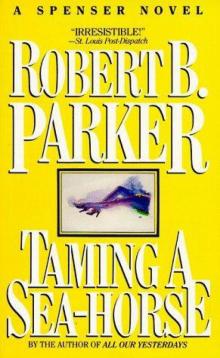 Taming a Sea Horse s-13
Taming a Sea Horse s-13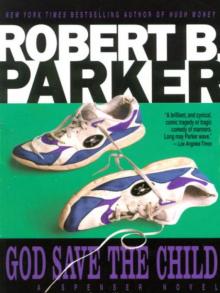 God Save the Child
God Save the Child Chance
Chance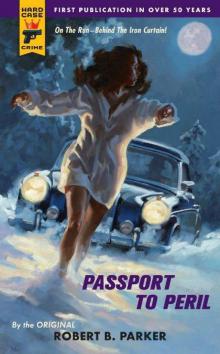 Passport To Peril hcc-57
Passport To Peril hcc-57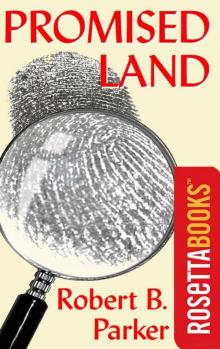 Promised Land
Promised Land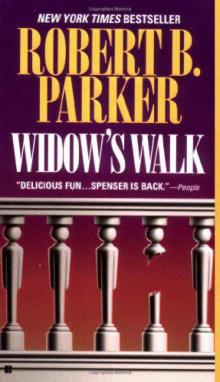 Widow’s Walk
Widow’s Walk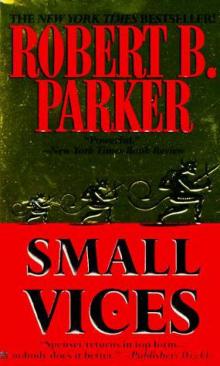 Small Vices
Small Vices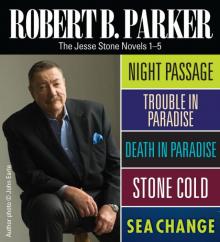 Robert B Parker: The Jesse Stone Novels 1-5
Robert B Parker: The Jesse Stone Novels 1-5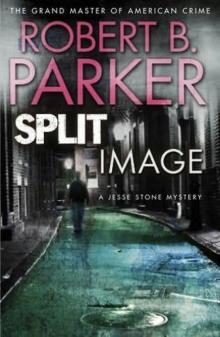 Split Image js-9
Split Image js-9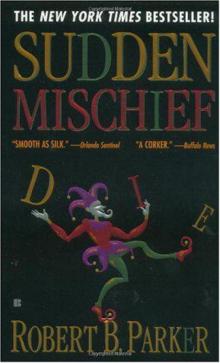 Sudden Mischief s-25
Sudden Mischief s-25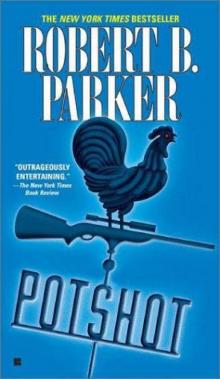 Potshot s-28
Potshot s-28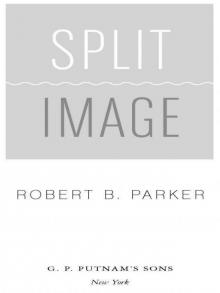 Split Image
Split Image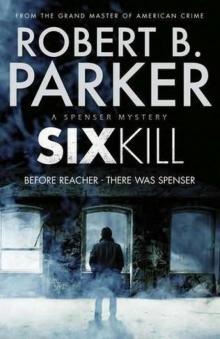 Sixkill s-40
Sixkill s-40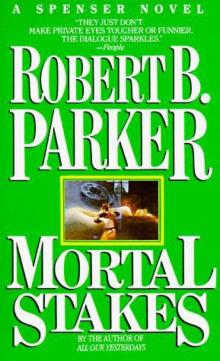 Mortal Stakes
Mortal Stakes Stardust
Stardust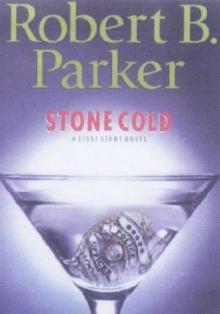 Stone Cold js-4
Stone Cold js-4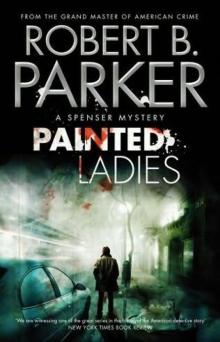 Painted Ladies s-39
Painted Ladies s-39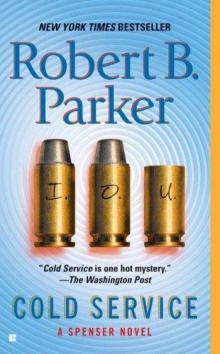 Cold Service
Cold Service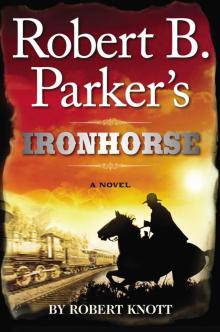 Ironhorse
Ironhorse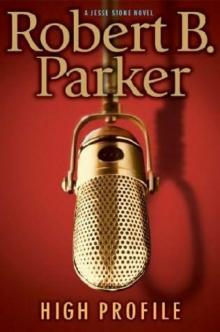 High Profile js-6
High Profile js-6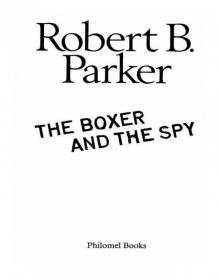 The Boxer and the Spy
The Boxer and the Spy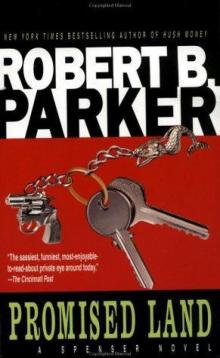 Promised Land s-4
Promised Land s-4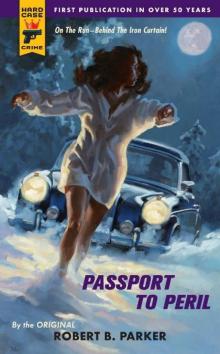 Passport to Peril (Hard Case Crime (Mass Market Paperback))
Passport to Peril (Hard Case Crime (Mass Market Paperback))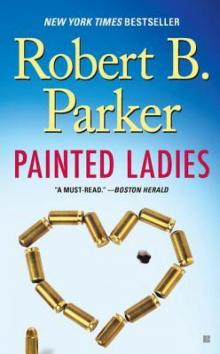 Painted Ladies
Painted Ladies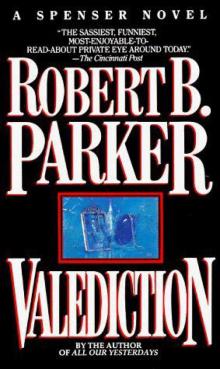 Valediction
Valediction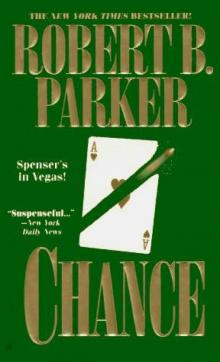 Chance s-23
Chance s-23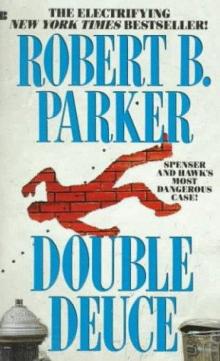 Double Deuce
Double Deuce Wilderness
Wilderness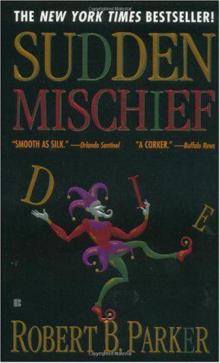 Sudden Mischief
Sudden Mischief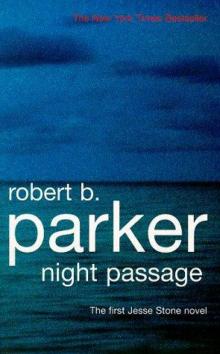 Night Passage js-1
Night Passage js-1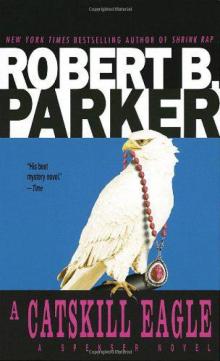 A Catskill Eagle
A Catskill Eagle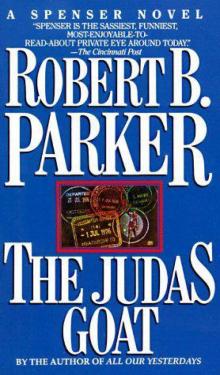 The Judas Goat
The Judas Goat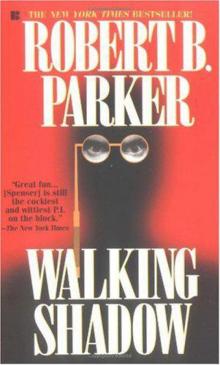 Walking Shadow
Walking Shadow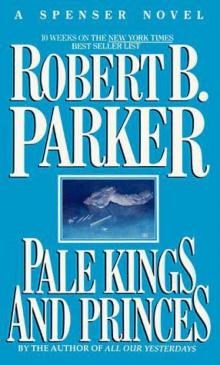 Pale Kings and Princes s-14
Pale Kings and Princes s-14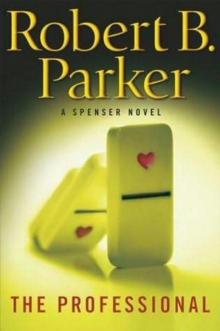 The Professional
The Professional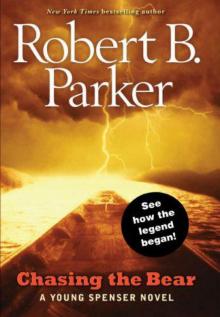 Chasing the Bear s-37
Chasing the Bear s-37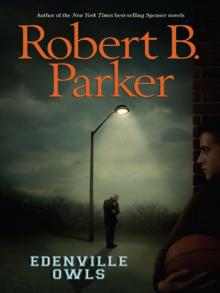 Edenville Owls
Edenville Owls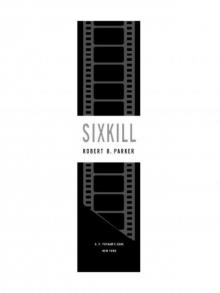 Sixkill
Sixkill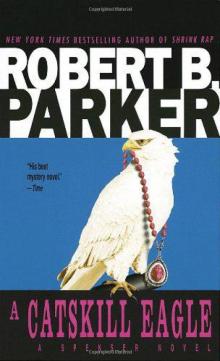 A Catskill Eagle s-12
A Catskill Eagle s-12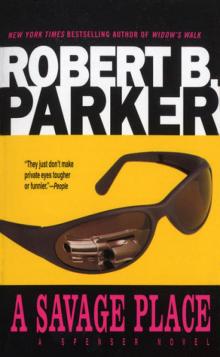 A Savage Place
A Savage Place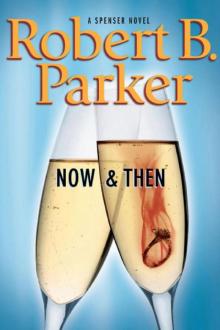 Now and Then s-35
Now and Then s-35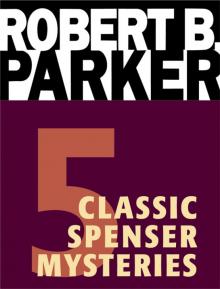 Five Classic Spenser Mysteries
Five Classic Spenser Mysteries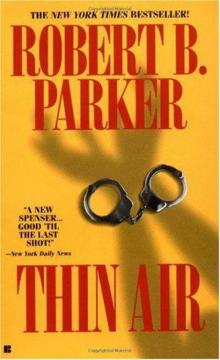 Thin Air s-22
Thin Air s-22